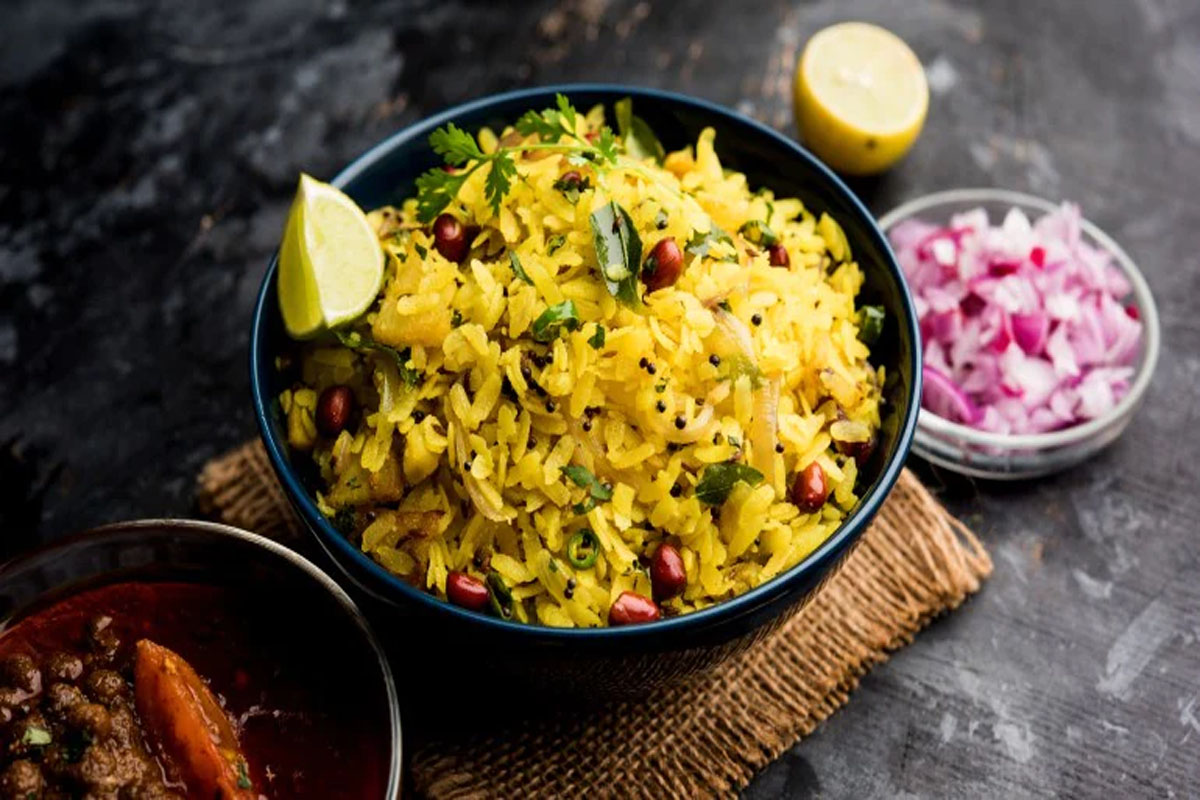Patanjali to organise free yoga, meditation camp at Mahakumbh
The camp will run from January 27 to January 30, 2025, from 5:00 AM to 7:30 AM, and will be held at Shri Gurukarshini Kumbh Mela Camp, located at Salori, Sector-9, Gangeshwar Marg.
White rice is polished to such an extent that it is stripped of its nutrients and fibre contents. In comparison, Poha is less processed and light in terms of cooking and digestion.

Poha benefits (Getty Image)
Poha aka beaten rice is one of the most popular breakfast options. But do you know it has major health benefits, along with taste?
Oatmeal and eggs are a staple breakfast option for those who are looking to lose weight. Isn’t it? Well, those are some great options, but how about turning to desi foods that strike the perfect balance between health and taste. One such lip-smacking breakfast is poha, also known as beaten rice.
Advertisement
Undoubtedly, poha is one of the most wholesome breakfasts you can ever find. It is rich in taste, contains antioxidants and vitamins, is gluten-free, and is a good source of carbohydrates. That’s why those of you who think a weight loss diet is all about feeling drained, make sure to test out the power of the ‘Poha’.
Advertisement
How is Poha Produced?
Poha is made by partly cooking paddy and then drying it out in the sun for hours until it turns a bit harder. They are then pounded and flattened to give the form of ‘flat rice’ or Poha. It does not go through a lot of processing and is generally not polished.
White rice is polished to such an extent that it is stripped of its nutrients and fiber contents. In comparison, Poha is less processed and light in terms of cooking and digestion.
Here are 6 reasons why you should eat Poha instead of white rice-
Rich in Healthy Carbohydrates
Poha is the best breakfast food because it packs approximately 70% of healthy carbohydrates and 30% fat. Thus, if you want fuel to go about your day, Poha does a better job. On the other hand, consuming rice tends to make people sleepy and might impact your performance throughout the day.
Source of Iron
The sundried Poha goes through iron rollers when it is flattened. Hence, it is considered high in iron content as it holds some of the iron from the flattening process. Population groups who are at a higher risk of gestational anemia such as pregnant women are usually advised to eat Poha. A dash of lemon juice on the Poha bowl provides it with Vitamin C required for the proper absorption of iron.
Easy on Digestion
While rice cannot be consumed at all times of the day, Poha can be eaten as a breakfast and an evening snack as well. Since it is easy on the digestive tract and does not cause bloating, it is fit to consume whenever you crave a quick snack. Just add a few vegetables, salt, one tbsp mustard oil and add it to a bowl of softened Poha, and you are done.
Probiotic Benefits
This might come as a surprise, but Poha does have probiotic advantages. The manufacturing process of Poha subjects it to fermentation. It retains the good bacteria that result from the metabolism of proteins and carbs and they keep the gut healthy! This benefit does not come with white rice.
Low in Calories
One bowl of cooked Poha with vegetables contains approximately 250 calories while the same quantity of fried rice contains 333 calories. It makes for a pretty good meal that keeps you fuller for longer. Some people also add fried peanuts to enhance the taste but keep in mind that it will increase the calorie count. So, you are better off skipping it if you are trying to lose weight.
Regulates Blood Sugar
While white rice causes an unanticipated burst in blood sugar, Poha keeps in check any sudden sugar spikes in the blood. Its fiber content allows the sugar to release steadily into the bloodstream, instead of causing an unexpected jump.
You can make your poha healthier and more nutritious by cooking it in olive oil or coconut oil and by adding more vegetables to it. You may even increase the satiety factor and make it protein-rich by throwing in some soybean chunks. All in all, the Indian poha is quite a rock star on the health front and must be included more often in your diet.
Advertisement